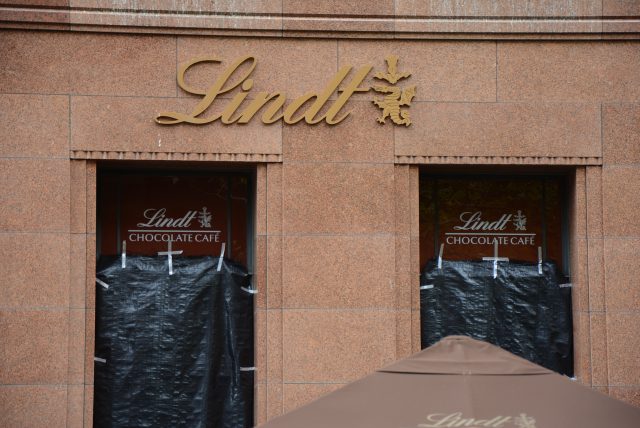
In a tragic twist of timing, the report on Australia’s worst terrorist incident in recent years was handed down only hours after the suicide bombing in Manchester Arena, the first mass-casualty jihadist terrorist attack in the UK for a decade and a half.
The lessons from the coronial inquest which followed the Lindt Café siege are extremely important to Australia, and we need to reflect and learn from them. This first in a series of articles on the siege and the inquest’s findings will examine what the process and the findings tell us about how best to review terrorism incidents.
NSW Coroner Michael Barnes’
472-page report is a comprehensive, considered and weighty tome. While the role of an inquest is limited to determining cause of death, the coroner may seek to examine other matters that help to shed light on how the deaths occurred. The NSW Coroner has done just that.
Media attention has focussed on Man Haron Monis’ propensity for violence, the negotiation process and whether the police should have taken action earlier. But the report’s richness comes from the surprising array of other areas that it examined. Policy for bail application and concession, file management, handling of ‘triple 0’ calls, how to track and record what occurs during an incident, the impact of transition of a situation to a terrorist incident and the practicalities of applying CT policies and plans to handle a terrorist event are just some of the areas that the report unpacks.
Barnes has examined the process of dealing with a terrorist incident in a way that Australians haven’t seen in recent times, and he’s tracked it across the full range of the intelligence, legal and operational processes. That’s cause for both reassurance and concern.
It’s reassuring that the report provides a valuable insight into many aspects of Australia’s counterterrorism machinery, with judgements on how well they worked and where they might be improved.
But it’s concerning that it’s only in a Coroner’s report we see such a comprehensive review of the end-to-end operation of counterterrorism machinery in a major incident. And it’s vitally important that the coronial process doesn’t take the place of such reviews. The Coroner’s role is to determine cause of death, not to comprehensively assess CT arrangements. The report is an extremely valuable artefact, but should be used as one input to broader reviews.
The Commonwealth has commissioned a number of reviews of CT capability, notably the 2015
Review of Australia’s Counter-Terrorism Machinery for a Safer Australia—delayed to incorporate consideration of the Lindt siege—and former Defence Secretary Ric Smith’s 2008 Review of homeland and border security. CT has featured in various reviews of the intelligence community. COAG also reviewed national CT laws, leading to the wide-ranging program of commonwealth and state legislation that continues to hold Australia in good stead. The 2015 ‘CT machinery’ review led to the appointment of the CT Coordinator, who’s tasked with giving the government a clear picture of the nation’s combined CT efforts.
Immediately after the siege, the Commonwealth and NSW governments undertook a
joint review published in February 2015. That provided the opportunity to quickly learn lessons and apply them to CT capability. It’s a great model for reviews.
But we don’t have a standing regime to regularly review and publicly report on the state of CT arrangements. Since the 2015 government report on Lindt, there hasn’t been another process comprehensively reviewing how CT capabilities and arrangements are tracking and how they work together across the jurisdictions, alongside business and the broader community. In a time of a quickly evolving terrorist threats and significant effort into developing and adapting Australia’s CT capability, that will be essential.
After the Lindt Café siege, the public was left wondering how well-placed Australia is to counter the highly likely threat of a major terrorist attack. We have a standing body which oversees CT arrangements—the Australia-New Zealand Counter-Terrorism Committee (ANZCTC)—which reports to COAG and the New Zealand government. The committee also links into the business community through its Business Advisory Group. The ANZCTC would be well placed to institute regular and comprehensive reviews.
An annual review would provide an active and critical look at capabilities, informed by analysis of CT-related events including investigations, disruptions and attacks, as well as the training and exercise regime. In addition to the various interagency exercises held by tactical units, such the police and the ADF, the decision-making of all relevant authorities also needs testing.
ASPI’s
Anthony Bergin and Paul Barnes recently highlighted the need for health first responders’ involvement in those exercises. There’s an urgent need for exercises to truly test the abilities of all those likely to be involved—from state and territory leaders, Commonwealth officials and emergency teams to tactical units—to prepare them for the ambiguity of a real terrorist incident. The Coroner’s finding, that there appeared to be misunderstandings at Lindt about how NSW should engage with the Commonwealth, reinforces that.
Australia does have very strong CT capabilities and arrangements, and the institution of an annual
National Security Statement by the Prime Minister has been an important addition to public understanding of the terrorist and CT environments. But it needs to be enhanced through regular reviews of evolving capability, with both classified and public reports.
That will encourage development of effective CT arrangements and ensure the public is regularly updated. Should a mass-casualty attack succeed, such reviews will play a vital role in ensuring that the public is clearly informed about what happened and what’s being done to deal with the aftermath.
 Print This Post
Print This Post